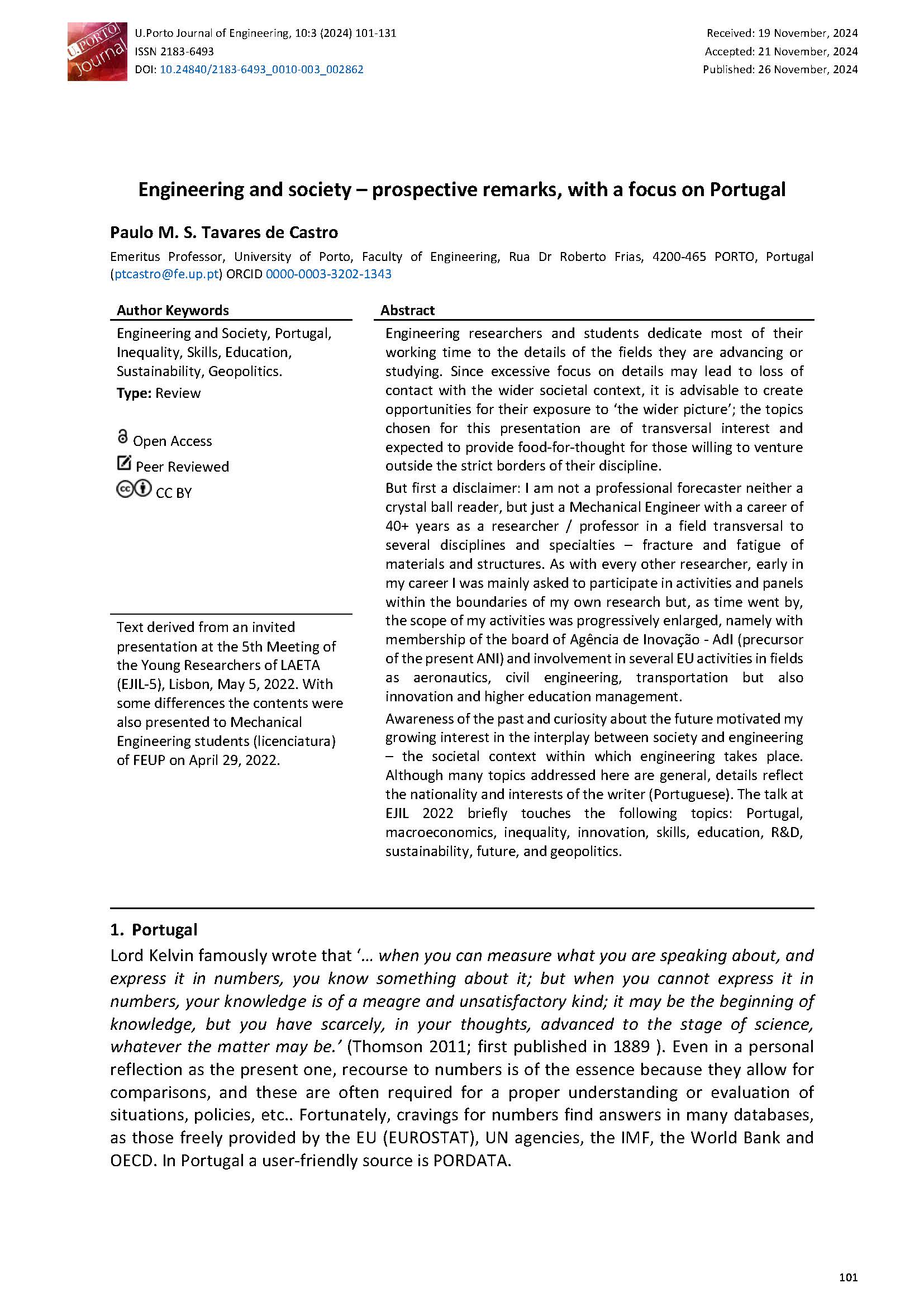Engineering and society – prospective remarks, with a focus on Portugal
Main Article Content
Abstract
Engineering researchers and students dedicate most of their working time to the details of the fields they are advancing or studying. Since excessive focus on details may lead to loss of contact with the wider societal context, it is advisable to create opportunities for their exposure to ‘the wider picture’; the topics chosen for this presentation are of transversal interest and expected to provide food-for-thought for those willing to venture outside the strict borders of their discipline.
But first a disclaimer: I am not a professional forecaster neither a crystal ball reader, but just a Mechanical Engineer with a career of 40+ years as a researcher / professor in a field transversal to several disciplines and specialties – fracture and fatigue of materials and structures. As with every other researcher, early in my career I was mainly asked to participate in activities and panels within the boundaries of my own research but, as time went by, the scope of my activities was progressively enlarged, namely with membership of the board of Agência de Inovação - AdI (precursor of the present ANI) and involvement in several EU activities in fields as aeronautics, civil engineering, transportation but also innovation and higher education management.
Awareness of the past and curiosity about the future motivated my growing interest in the interplay between society and engineering – the societal context within which engineering takes place. Although many topics addressed here are general, details reflect the nationality and interests of the writer (Portuguese). The talk at EJIL 2022 briefly touches the following topics: Portugal, macroeconomics, inequality, innovation, skills, education, R&D, sustainability, future, and geopolitics.
Downloads
Article Details

This work is licensed under a Creative Commons Attribution 4.0 International License.
Authors who publish with this journal agree to the following terms:
- Authors retain copyright and grant the journal right of first publication with the work simultaneously licensed under a Creative Commons Attribution License that allows others to share the work with an acknowledgement of the work's authorship and initial publication in this journal.
- Authors grant the journal the rights to provide the article in all forms and media so the article can be used on the latest technology even after publication and ensure its long-term preservation.
- Authors are able to enter into separate, additional contractual arrangements for the non-exclusive distribution of the journal's published version of the work (e.g., post it to an institutional repository or publish it in a book), with an acknowledgement of its initial publication in this journal.
- Authors are permitted and encouraged to post their work online (e.g., in institutional repositories or on their website) prior to and during the submission process, as it can lead to productive exchanges, as well as earlier and greater citation of published work (See The Effect of Open Access).

